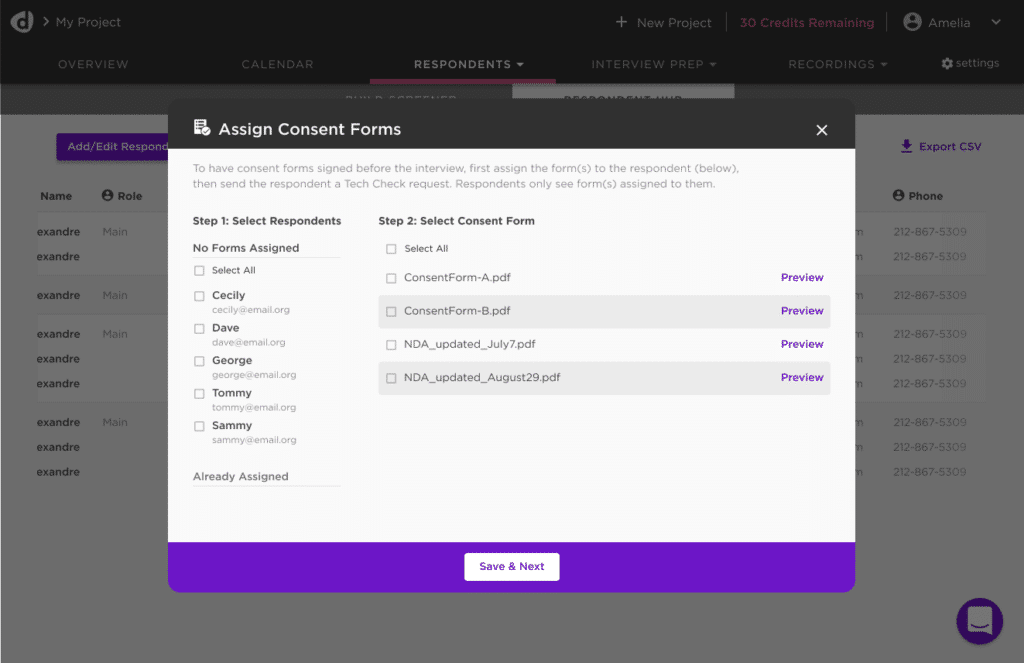De-risk Your Launch with Qualitative Concept Testing

Launching a new product or service always comes with some degree of risk. But what if you could significantly reduce that risk? That’s where qualitative concept testing comes in. With concept testing, you can gain a clear understanding of how consumers will respond to your product or service before launching.
What is “Concept Testing?”
Concept testing is a key step in the product development process. It can help you determine whether a product or service will succeed by gauging consumer interest and understanding how it fits into the market. By conducting concept testing, you can identify and address potential problems early on and ultimately increase your chance of success when the product or service launches.
The best way to get in-depth insights during the concept testing phase is to conduct qualitative research. Qualitative concept testing allows you to understand how consumers perceive and respond to new product or service concepts, gain deeper insights, and get a more holistic view of how the market will receive your product or service. This type of concept testing is typically done through focus groups, individual interviews, or bulletin boards, and it provides valuable insights into consumer attitudes, behaviors, and preferences.
4 Benefits of Concept Testing
There are many benefits to qualitative concept testing that go well beyond determining if your product or service will be a hit with your target audience. These benefits include:
- Identifying potential areas for improvement. One of the key benefits of qualitative concept testing is that it allows you to gather in-depth, subjective feedback from your target audience. This can help point out potential roadblocks or objections to a new concept and allow you to make necessary adjustments before launching a product or service. For a powerful example of how product concept testing is now done in today’s virtual world, check out this short video of Reckitt’s Global Insights and Analytics Manager recently sharing about the best practices they are now employing.
- Improving your marketing messaging. Through qualitative concept testing, you’ll learn how your target audience talks about your product or service and what they like most about it. You will not only use the exact words and phrases they use but be able to fine-tune your marketing messaging to highlight the benefits your target audience finds most valuable.
- Creating targeted campaigns. Are you competing in a crowded market? Qualitative concept testing gives you a better understanding of what consumers are looking for to create more targeted marketing campaigns and increase the chances of success. Based on the responses you receive, you can adjust your marketing and branding strategies to better align with consumer preferences and expectations.
- Identifying opportunities for differentiation. Qualitative concept testing can also help you discover ways to stand out from the competition. By understanding what consumers value in your product or service, you can highlight or lean into the unique selling points that set your product or service apart from your competitors.
Qualitative concept testing is an incredibly valuable process for businesses looking to understand how consumers will perceive and respond to a new product or service. By gathering in-depth feedback from your target audience, you can make informed decisions about how to move forward with your new product or service and reduce the risk of launching a product or service that falls flat with consumers.
Solving the biggest challenge in concept testing
One of the biggest challenges is taking what can be hours and hours of video interviews done for concept testing and what amounts to ‘unstructured data’ (i.e., the text transcription from those interviews) and distilling key learnings from it. Oftentimes, if using technology like Discuss, organizations end up cutting the time in half, or more, by using unique, built-in capabilities not available in more basic qual research tools. Here’s a look at some of these capabilities and their impact on helping teams take their concept testing to the next level:
- Generate clips automatically by keywords or phrases. The platform can auto-clip based on pre-created tags – when a keyword or phrase is said, a 30-second clip gets created automatically. Post-session, new tags can also easily be added.
- Save moments in a click. Anyone viewing – moderators, observers, viewers, etc. can hit a ‘Save Moment’ button to create a clip that begins 15 minutes before you click the button and ends 15 seconds after the moment you click it.
- Filter clips with ease. Search and filter video clips quickly with tags across different projects, location-specific markets, as well as particularly positive, negative, and neutral/mixed sentiments.
- Create highlight reels. Discuss has always had the best tools in this area, with drag-and-drop ease for creating highlight reels. We’ve recently further innovated here (1 min. Overview video here) with additional capabilities that further contribute to bringing the ‘sizzle’ to your sizzle reels.
- Easily share clips and highlight reels. With just one click, users can share out those memorable moments with colleagues and other key stakeholders.
With Discuss, global brands as well as hundreds of agencies like Wonderlust, have transformed their concept testing. to conduct unmoderated video surveys, diaries, and more. Click here to speak with a Discuss Expert to determine which approach is best for you and better understand our range of capabilities that support qualitative concept testing.
Sign Up for our Newsletter
Related Articles

13 Ways to Build Products People Will Buy
How can companies build products that people will buy? To help you build the best products people will buy, we…
How can companies build products that people will buy? To help you build the best products people will buy, we…

From Observation to Insight to Strategy: The Evolution of Innovation
Many people think that innovation starts with the proverbial “big idea,” the imaginary bulb that lights up above an inventor’s…
Many people think that innovation starts with the proverbial “big idea,” the imaginary bulb that lights up above an inventor’s…

Introducing Discuss Consent Forms
Many Discuss users work in highly regulated, privacy-forward industries that require consent from their respondents for security purposes, protecting early…
Many Discuss users work in highly regulated, privacy-forward industries that require consent from their respondents for security purposes, protecting early…


